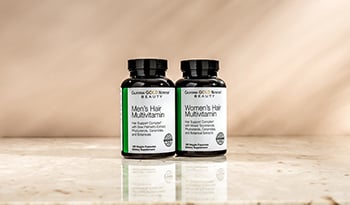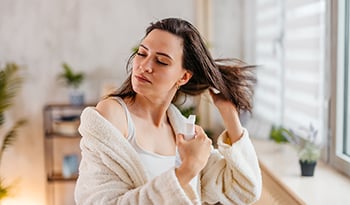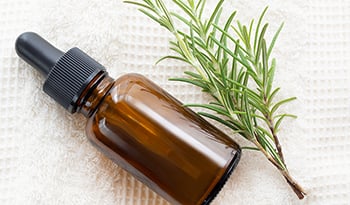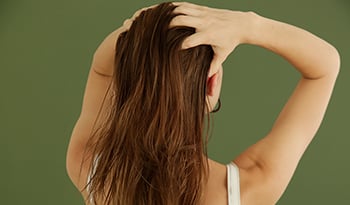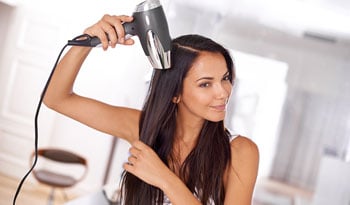De ce nu ar trebui să scapi de îngrijirea scalpului, potrivit unui dermatolog
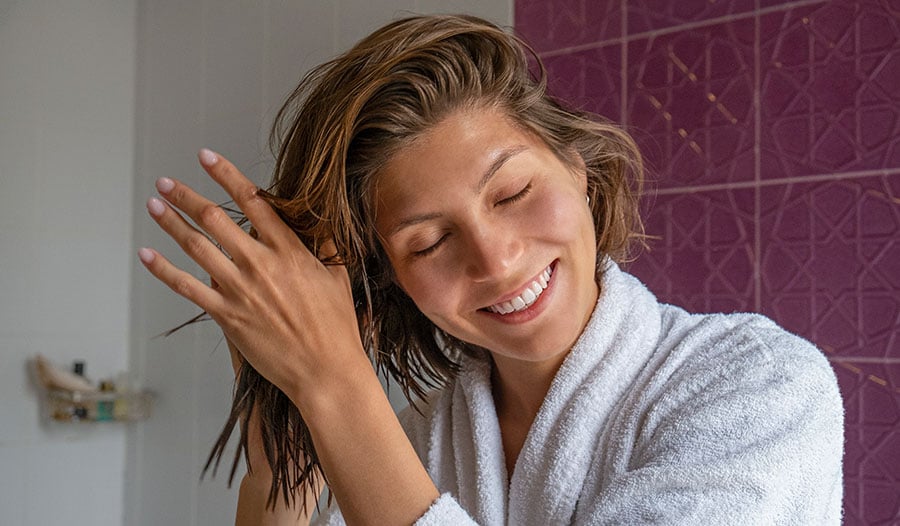
Industria frumuseții s-a asigurat că ne informează despre beneficiile unui regim cuprinzător de îngrijire a pielii - știm totul despre importanța curățării, hidratării, exfolierii și protejării pielii de pe fețele noastre.
Dar cum rămâne cu pielea de pe scalpul nostru? Dacă există un lucru pe care îl știu ca dermatolog practicant certificat de consiliu, este că există o mulțime de confuzii în jurul îngrijirii părului și a scalpului. Ce produse să folosești, cum să le folosești și cum ar trebui tratate diferitele tipuri de păr sunt lucruri pe care puțini oameni par să fie de acord, în special având în vedere abundența de produse pentru păr care acoperă coridoarele de frumusețe bine aprovizionate. Când aruncați o afecțiune medicală reală care afectează scalpul, apele devin și mai tulburi.
Aici, voi împărtăși câteva lucruri de care trebuie să țineți cont atunci când vine vorba de îngrijirea scalpului, împreună cu o scufundare mai profundă în unele afecțiuni comune care vă pot împiedica de la o sănătate optimă a scalpului.
De ce ar trebui să-mi pese de sănătatea scalpului meu?
Pur și simplu, părul sănătos începe cu un scalp sănătos. Știm, de exemplu, că zgârierea cronică pentru ameliorarea mâncărimii scalpului poate duce la deteriorarea foliculilor de păr și pierderea ulterioară a părului. Cercetările sugerează, de asemenea, că iritarea cronică a scalpului și inflamația în sine pot provoca leziuni ale părului.
Dacă sunteți frustrat de ruperea părului, fragilitatea sau creșterea suboptimă a părului, dar nu ați făcut nimic pentru a aborda mâncărimea, descuamarea sau roșeața scalpului, atunci este posibil să nu vedeți progrese până nu ajungeți la rădăcina problemei - joc de cuvinte intenționat!
În afară de afecțiunile cronice inflamatorii ale scalpului care pot necesita ajutorul unui dermatolog, mulți suferă, de asemenea, de scalpul uscat legat de o serie de alți factori, inclusiv dieta, stresul, medicamentele, practicile de coafare și șamponare, vreme și boli.
Cum să vă îngrijiți scalpul
Acum că v-am convins că ar trebui să vă pese de sănătatea scalpului, haideți să vorbim despre câteva modalități practice prin care puteți acorda scalpului la fel de multă atenție ca și restului corpului.
Exfolierea scalpului
Exfolierea este, pur și simplu, procesul de îndepărtare a celulelor moarte ale pielii din stratul exterior al pielii. Beneficiile exfolierii scalpului includ îndepărtarea murdăriei, a produsului și a celulelor moarte ale pielii de pe suprafața scalpului, promovând astfel creșterea părului. Acest lucru poate fi realizat prin exfoliere fizică (gândiți-vă la scruburi și perii de masaj exfoliante) sau exfoliere chimică (acizi topici sau enzime care lucrează pentru a elimina celulele moarte ale pielii). O perie de masaj pentru scalp ajută la dilatarea vaselor de sânge din scalp, ceea ce poate încuraja, de asemenea, creșterea părului. Aveți grijă să nu exagerați - supra-exfolierea poate duce la iritarea scalpului, ceea ce este cu siguranță contraproductiv pentru obiectivele dvs., așa că rămâneți o dată sau de două ori pe săptămână.
Iată câteva produse excelente pentru a începe exfolierea scalpului:
Dr. ForHair Folligen Scaler de sare de mare
Detartrați-vă scalpul cu Dr. ForHair Folligen Sea Salt Scaler. Acest produs utilizează sare din Marea Moartă. Această formulare fără silicon și sulfat este excelentă pentru scalpul gras.
Scrub de curățare profundă a scalpului și părului Zion Health
Zion Health Deep Cleansing Scalp & Hair Scrub este un scrub vegan, fără sulfați, fără parabeni și fără gluten, formulat pentru a exfolia delicat și a ajuta la dizolvarea acumulării de murdărie, uleiuri în exces și produse pentru păr. Îmi place parfumul Pear Blossom, dar au mai multe din care să aleg.
Exfoliant pentru scalp Kitsch
Kitsch Scalp Exfoliator este un exemplu excelent de exfoliant fizic care folosește peri flexibili pentru a stimula circulația scalpului, precum și pentru a îndepărta fulgii de scalp aderenți. Ca un bonus suplimentar, se simte ca și cum ai primi un masaj relaxant al scalpului - acasă și la un preț accesibil!
Exfoliant exfoliant pentru scalp Head & Shoulders
The Head & Shoulders Supreme Exfoliating Scalp Scrub, bogat în vitamina E și ulei de argan, este menit să precede pașii de șampon și balsam. Masați în scalp pentru a îndepărta acumularea, clătiți, apoi urmați cu șamponul.
Șampon natural anti-mătreață Jason pentru îngrijirea scalpului
Șamponul natural anti-mătreață de îngrijire a scalpului Jason's acționează pentru a exfolia chimic cu acid salicilic, care vizează deformarea mai groasă a scalpului. Combinat cu sulf, acest produs este excelent pentru dermatita seboreică și psoriazisul ușor. În plus, acest produs este certificat Leaping Bunny și fabricat fără sulfați sau parabeni.
Șampon pentru ameliorarea scalpului DERMA E
Un alt exfoliant chimic cu acid salicilic, DERMA E Scalp Relief Shampoo este, de asemenea, fără cruzime și conține vitamine îmbogățitoare pentru a vă hidrata scalpul. Uleiul de arbore de ceai ajută la calmarea iritației, mentolul pentru o senzație răcoroasă și răcoritoare și un amestec de plante proprietar pentru a promova manevrabilitatea și strălucirea pentru păr cu aspect mai sănătos.
Hidratarea scalpului
Simți că ai pielea uscată cronic? Acest lucru poate însemna că sunteți mai predispus la - ați ghicit - scalpul uscat. Acest lucru poate fi legat de lucruri aflate sub controlul dvs., cum ar fi cât de des șamponați, precum și lucruri în afara controlului dvs., cum ar fi genetica și schimbările meteorologice sezoniere care provoacă aer mai uscat în lunile reci de iarnă. Lipsa de umiditate în scalp poate duce la mâncărime și descuamare, chiar dacă nu îndeplinește pragul a ceva precum dermatita seboreică sau psoriazisul. Măștile de condiționare profundă a părului și scalpului pot fi o modalitate excelentă de a combate scalpul uscat și fulgii pe care îi produce. Iată câteva dintre preferatele mele:
Tratament pentru îngrijirea scalpului uscat Dove Hair Therapy
Tratamentul pentru îngrijirea scalpului uscat Dove Hair Therapy conține Vitamina B3 pentru a maximiza eliberarea hidratării scalpului. Fără parabeni și cruelity, acest spray este aplicat direct pe scalpul uscat sau umed în secțiuni, masat și lăsat pe loc.
Advanced Clinicals Mască detoxifiantă pentru păr cu ulei de arbore de ceai
Masca de păr detoxifiantă cu ulei de arbore de ceai Advanced Clinicals este o mască de păr de condiționare profundă, care este simplă atunci când vine vorba de hidratarea scalpului și a părului. Această mască populară de păr conține ulei de arbore de ceai pentru a calma mâncărimea scalpului, ulei de nucă de cocos pentru hidratare și vitamina B5 pentru întărirea părului. Nu există teste pe animale, parabeni sau sulfați aici!
DERMA E Tratament de ameliorare a scalpului
DERMA E se mândrește cu formule vegane fără cruzime, iar acest produs nu face excepție. Acest ser de tratament pentru ameliorarea scalpului conține același amestec de plante proprietar de Neem, Brusture și Bearberry, precum și Aloe Vera hidratantă, mentol răcoritor și ulei liniștitor de arbore de ceai.
Tratarea unei tulburări de scalp subiacente
Dacă simțiți că simptomele dvs. depășesc doar descuamarea ușoară, intermitentă și mâncărimea ocazională, este posibil să aveți o afecțiune cronică de bază a scalpului, cum ar fi psoriazisul sau dermatita seboreică.
Psoriazis
Psoriazisul este o boală inflamatorie cronică a pielii care afectează adesea scalpul, provocând mâncărimi ale scalpului și o erupție cutanată roșie. Deși nu înțelegem complet ce cauzează psoriazisul, există probabil mai mulți factori în joc, inclusiv genetica și factorii externi, cum ar fi stresul și infecțiile. Psoriazisul scalpului, atunci când este sever, se crede că afectează creșterea părului din cauza inflamației cronice din foliculii de păr și a supraproducției celulelor pielii, creând un mediu suboptim pentru creșterea părului nou.
Dermatita seboreică
Dermatita seboreică este o altă afecțiune cronică a scalpului pe care o văd și o tratez frecvent în clinica mea. Mulți dintre noi am experimentat acest lucru la un moment dat și îl cunoaștem pur și simplu ca „mătreață”. Este cauzată de supraproducția de sebum, uleiul produs de glandele sebacee, care facilitează creșterea unei drojdii numite Malassezia. Această drojdie este o parte normală a florei pielii noastre, chiar și la indivizii fără fulgi vizibili, dar unii dintre noi par să aibă un răspuns imun reactiv la aceasta, în timp ce alții nu. S-a constatat că părul care crește dintr-un scalp afectat de mătreață are semnificativ mai multe daune proteice în comparație cu părul care crește dintr-un scalp sănătos. Un studiu a arătat că cuticula , sau stratul protector exterior al arborelui de păr, al părului afectat de mătreață a fost, de asemenea, deteriorată semnificativ și că diametrul total al părului a fost scăzut cu până la 35% în părul afectat de mătreață.
Acidul salicilic, menționat anterior în timp ce discutăm despre exfoliere, este un remediu bun fără prescripție medicală pentru ambele afecțiuni - iată alte două produse pe care le recomand frecvent:
Șampon pentru apărarea mătreții pentru cap și umeri clinică: salvarea scalpului uscat
Șamponul Head & Shoulders Clinical Strength Dandreath Defense: Dry Scalp Rescue conține sulfură de seleniu, un ingredient puternic anti-mătreață care ajută la reducerea descuamării severe a scalpului și a mâncărimii. De asemenea, este infuzat cu miere de manuka, care este cunoscută pentru proprietățile sale hidratante și antioxidante.
Artnaturals Scalp 18 Șampon cu gudron de cărbune Formula
artnaturals Scalp 18 Shampoo Coal Tar Formula conține gudron de cărbune, o soluție preferată pentru mătreața încăpățânată, care poate fi, de asemenea, utilă pentru descuamarea, mâncărimea și descuamarea observate în psoriazisul scalpului. Funcționează cel mai bine atunci când este lăsat pe scalp câteva minute înainte de clătire.
Cum îmi păstrez scalpul sănătos?
Încercați să nu treceți cu vederea sănătatea scalpului dvs. - poate fi adesea cheia optimizării sănătății părului. Evitați șamponarea excesivă, hidratați-vă în mod regulat și, dacă ceea ce ați încercat acasă pur și simplu nu îl tăiați, solicitați ajutor de la un profesionist. Amintiți-vă, dacă mâncărimea de pe scalp pare cu adevărat extremă sau dacă fulgii groși și galbeni cu care ați avut de-a face par mai mult decât un scalp uscat, consultați un dermatolog pentru a determina dacă aveți o afecțiune de bază care necesită evaluare.
Referințe:
- Kim KS, Shin MK, Ahn JJ, Haw CR, Parcul HK. Investigarea arborelui de păr în dermatita seboreică folosind microscopia forței atomice. Skin Res Technol. 2011 august; 17 (3) :288-94. https://pubmed.ncbi.nlm.nih.gov/21272080/
- Nestle FO, Kaplan DH, Barker J.Psoriazis. N Engl J Med. 2009; 361 (5) :496-509. https://www.nejm.org/doi/full/10.1056/nejmra0804595
- Pechère M, Krischer J, Remondat C, Bertrand C, Trellu L, Saurat JH. Transportul Malassezia spp la pacienții cu dermatită seboreică. J Dermatol. 1999; 26 (9): 558-61. https://pubmed.ncbi.nlm.nih.gov/10535248/
Declarație de declinare a responsabilității:Acest blog nu are ca scop să ofere un diagnostic.














































































 Cuprins
Cuprins





